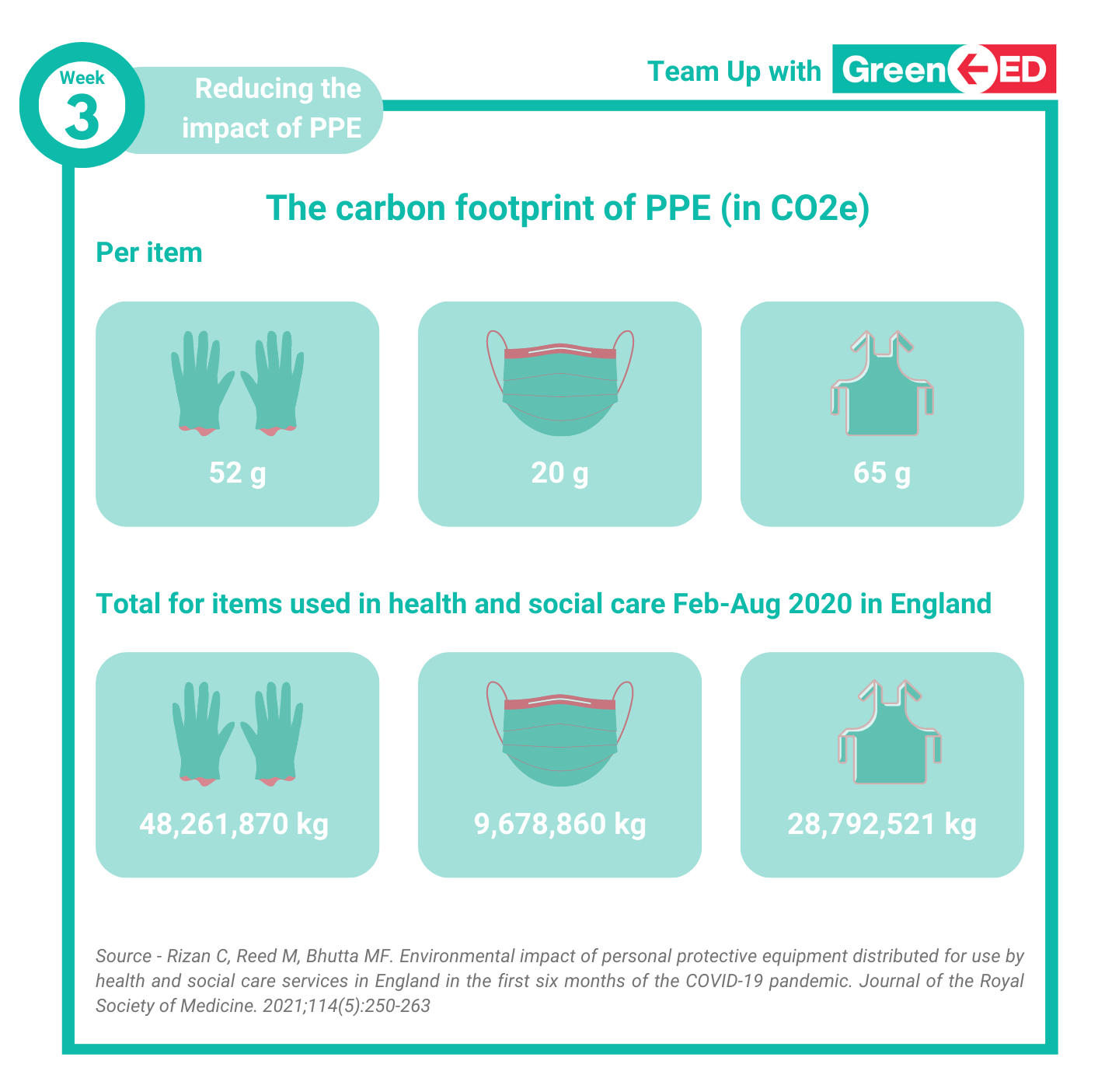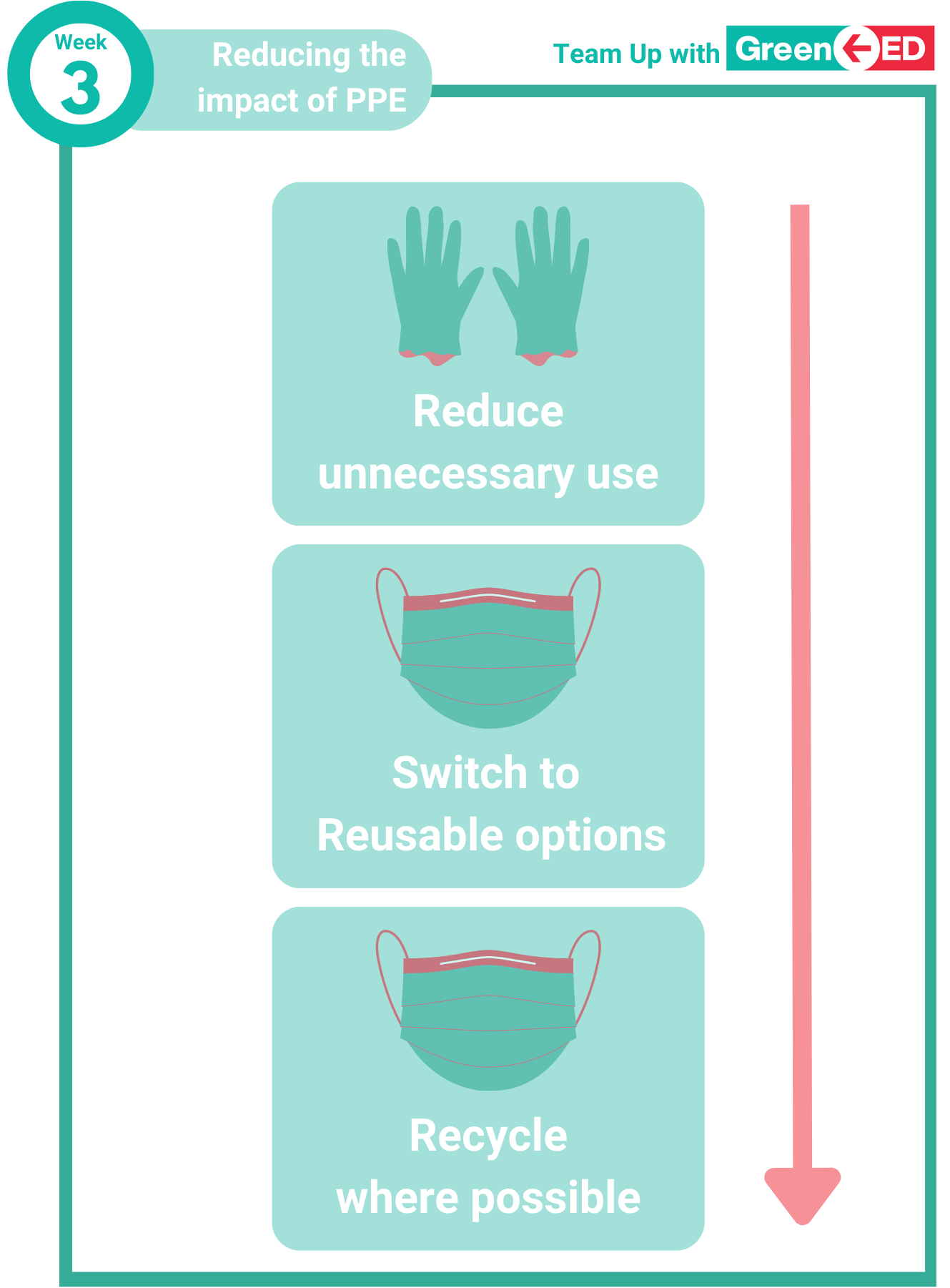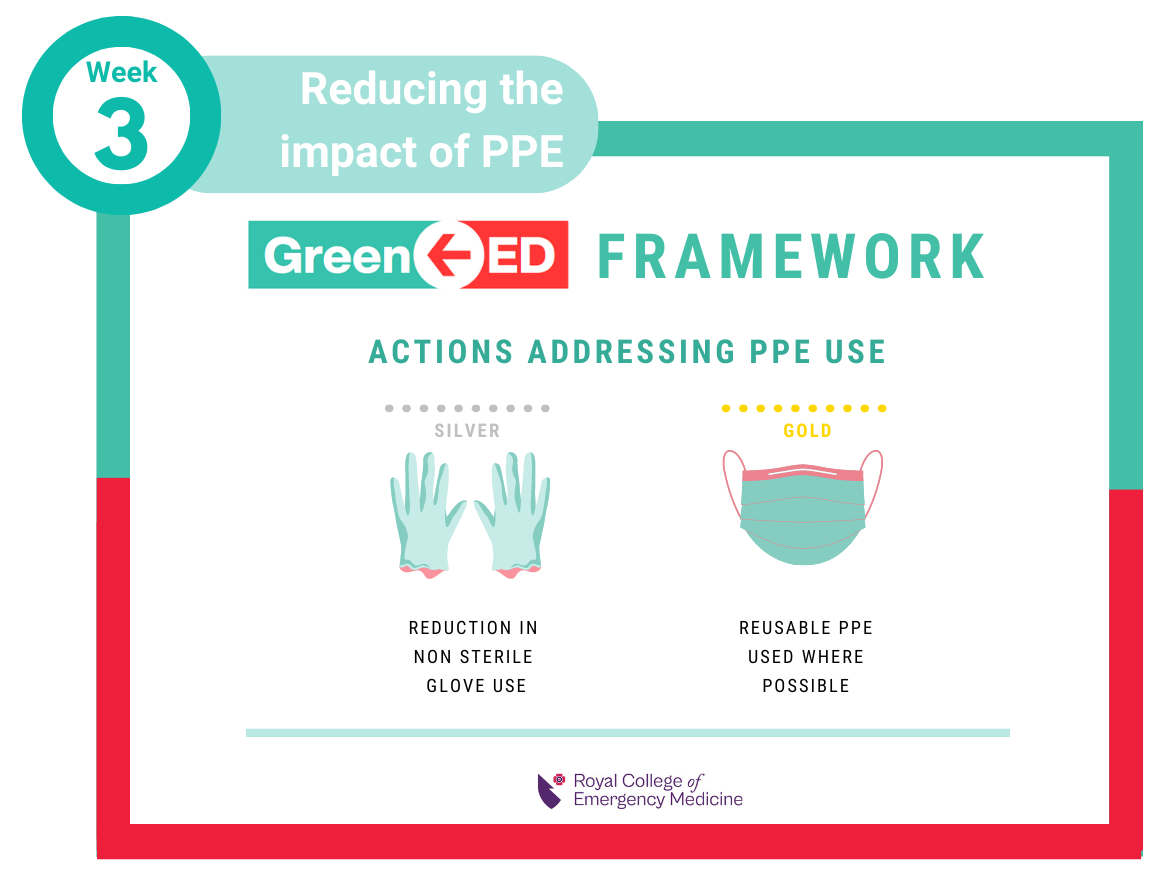Week 3 and we're focusing on PPE. PPE can be life-saving when used correctly, but used unnecessary use carries a huge environmental and financial cost.
Two actions on the GreenED framework address this - see https://greened.rcem.ac.uk
The carbon footprint of PPE is huge. A recent LCA showed the footprint (in CO2e) for each of the following items to be:
IIR face mask = 20g
glove = 26g
apron = 65g
face shield = 231g
[Data from this paper : https://journals.sagepub.com/doi/full/10.1177/01410768211001583]

This paper also suggests the environmental impact of PPE "could be reduced through domestic manufacture, rationalising glove use, using reusables where possible and optimising waste management". This fits nicely with the waste hierachy ladder


So looking at reducing unnecessary use first. Hand washing is often as effective as wearing gloves AND avoids plastic waste
Recommendations from NHSEngland and WHO are that gloves are needed when
- exposure to blood/body fluids, nonintact skin or mucous membranes anticipated
- infection risk
- handling certain Px
This NHSEngland eLearning package explains the evidence on glove use and hand hygeine with lots of useful resources:
https://ppe.qilearning.england.nhs.uk
NHS England also provide useful posters.
A successful example comes from Great Ormon Street Hospital where a campaign to reduce glove use in 2019 saved 21 tonnes of plastic and £90,000
https://www.england.nhs.uk/greenernhs/whats-already-happening/
If we can't reduce, the next best option is reuse. Reusable face masks are an option and offer:
- more comfort
- IIR protection
- reduce plastic waste
- cost-effective
Reusable face masks have been trialled by Revolution Zero in the ED at Royal Devon and Exeter Hsopital to establish logistical pathways and stakeholder engagement.
We will report back on the outcomes soon
After finally, after reduce and reuse, comes recycle
Northumbria Hospital introduced a sterimelt machine to recover and recycle the polypropylene in single use facemasks with an estimated 50% reduction in emissions compared to incineration
https://www.northumbria.nhs.uk/media-centre/news-and-blogs/news-stories…
If anyone is interested I have attached the paper that I wrote on the pilot we ran on reusable facemasks. Lots of trials across the UK and lots of good positive results
Thanks Alexis - that's really interesting
Please log in or sign up to comment.